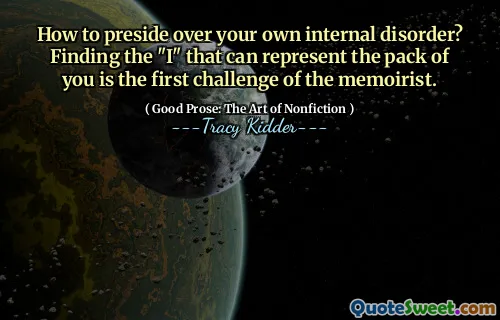Though he had spoken of the subject many times, in the silence of his room he added the powerful kind of phrasing that would not have occurred to him as he spoke, because it's origins were in the collaboration of hand and pen.
In Mark Helprin's novel "A Soldier of the Great War," the protagonist reflects on the contrasts between spoken and written expression. While he has discussed important topics repeatedly, it is in the solitude of his room, with pen in hand, that he discovers more profound and impactful ways to articulate his thoughts. This highlights the idea that writing allows for deeper contemplation and creativity that can be lost in verbal communication.
The act of writing serves as a collaboration between his mind and the physical act of writing, leading to a richer understanding of his experiences. The silence of his surroundings provides space for reflection, allowing him to craft phrases that resonate on a deeper level than what is possible during casual conversation. This emphasizes the transformative power of writing as a means of expression and self-discovery.





